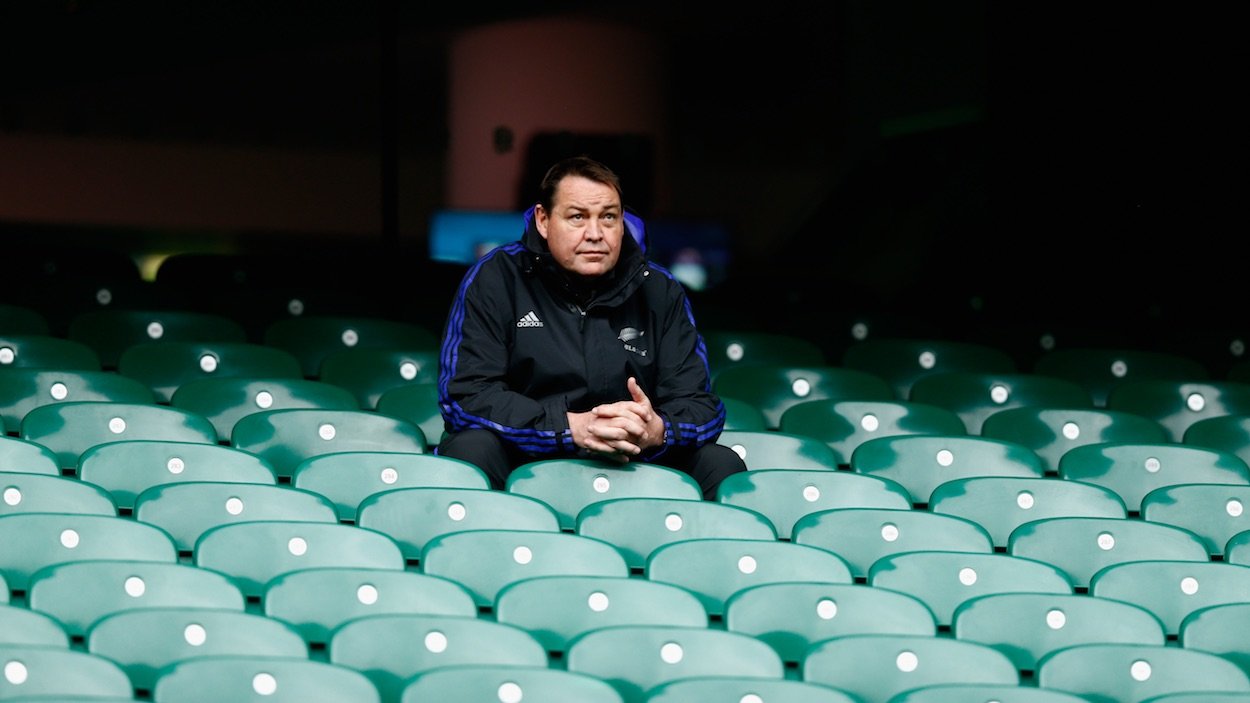Steve Hansen On Why Northern Hemisphere Rugby Will Never Catch The South

All Blacks coach Steve Hansen gives Duncan Greive five reasons why the Southern Hemisphere rugby nations will always be ahead of the Northern Hemisphere.
When Steve Hansen first emerged, bluff and blinking, into the post-Graham Henry glare of New Zealand and global rugby scrutiny, he had all the makings of an enormous bore.
Straight out of the Canterbury talent factory, connected to all those who made the game successful but vaguely predictable down that way, Hansen seemed like a man determined to continue the process rather than do anything too radical.
Above all, he seemed like someone unlikely to ever utter a single exciting word, an impression born out by the disiniterested monontone in which he has only ever spoken. And yet, Hansen has become New Zealand’s rugby’s most radical man this side of Sonny Bill Williams.
His thoughts on both the game and the culture which surrounds it are legitimately fascinating: he has acknowledged bonds of love existing within the All Blacks and said that mad Mondays were a blight on the game that should be banished, after the Chiefs disgraced themselves recently.
So when I interviewed him recently for a feature, I was unsurprised by the cerebral and insightful quality of his answer to a question about the hegemonic supremacy of Southern Hemisphere teams over their Northern counterparts. His answer came in five parts, and should make English fans weep.
1. Environment
“The biggest reason is the mindset of how we play the game down here, which has something to do with our environment. Our environment is not as harsh as in the Northern Hemisphere in the winter, so it’s a little bit more conducive to playing and running a high tempo game than it is in the Northern Hemisphere.”
2. Opposition
“We play each other. When you play each other, the stronger get stronger.”
3. Athletes
“I think our athletes are more natural, without wanting to sound condescending. They’re built through kids going out and playing outside from day one, climbing trees – sort of like a natural agility athlete as opposed to a whole lot of Northern Hemisphere athletes: big, strong men who are built in the gym and who probably don’t have that same agility.”
4. Cross-coding
“Particularly in Australia and New Zealand, young kids play a lot of sport, not just one sport. It’s well proven that you pick up more skill because of that, whereas in the Northern Hemisphere you really focus only on the one sport and you don’t have a lot of crossover.”
5. Quantity of games
“I don’t know how many games they play up there but if you’re playing every game you’ll be playing well over 40 or 50. And while they don’t have a lot of travel, they still play a lot of games. So their model up there is based on the soccer model, which I don’t think suits rugby.”


































